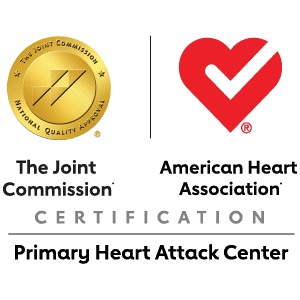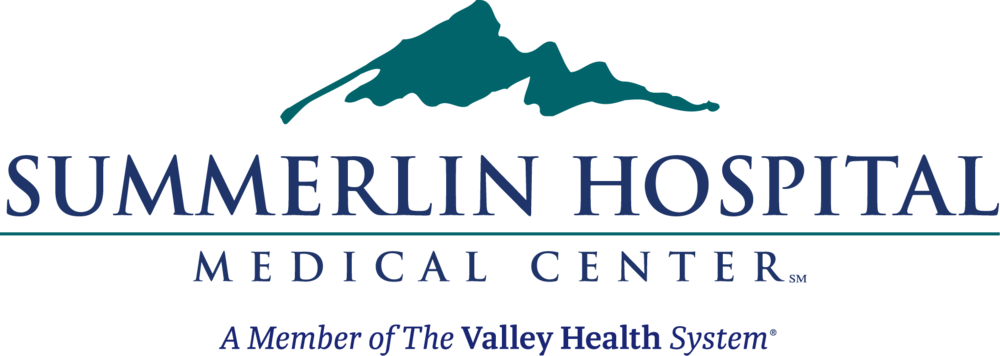The Heart Center at Summerlin Hospital
Your Heart Health Is Our Passion
When you have chest pain, irregular heartbeat or other signs of a heart condition, it can be scary. The Heart Center at Summerlin Hospital has the technology and services you need. We can take care of you in an emergency, or we can get to the bottom of what is causing your symptoms.
We offer services from preventive cardiology and diagnosis to interventional cardiology and rehabilitation.
Find a Cardiologist
Need a doctor? For a free referral, call 702-388-4888 or search for a physician online.
Cardiovascular disease is the leading cause of death in the United States, according to the Centers for Disease Control and Prevention (CDC). Heart attacks and stroke are both caused by atherosclerosis, or a build-up of fatty deposits that block blood flow.
The American Heart Association® estimates that more than 71 million Americans have one or more conditions. That means one in five Americans. Common conditions include:
- High blood pressure
- High cholesterol
- Peripheral vascular disease
- Coronary artery disease
- Stroke
- Congenital heart defects
- Congestive heart failure
- Valvular heart disease
It is very important to take care of your heart health. Your heart, and the arteries and vessels that support it, are crucial to your overall health. We are here to help you and to put you at ease.
Primary Heart Attack Center
Summerlin Hospital is accredited through The Joint Commission and the American Heart Association as a Primary Heart Attack Center. This means the hospital is dedicated to providing cardiac care with a patient-centric approach that is better for patients and their families.
Diagnosing Cardiac Disease
Summerlin Hospital has advanced technology to help diagnose a wide range of cardiac diseases and conditions.
- Echocardiography – Ultrasound waves produce clear images of the heart in action. This allows cardiologists to evaluate how well the heart is working.
- Electroencephalogram (EEG) – This monitors the electrical activity in the brain to help diagnose strokes, seizures and other conditions.
- Electrocardiogram (EKG) – Traces electric activity in the heart to help diagnose heart problems.
- Pacemaker Analysis – This tests how well implanted pacemakers are working.
- Treadmill Exercise Stress Testing – Measures how the heart works while under the stress of exercise.
- Ultrasound with Doppler – This shows changes how well the heart is moving blood and oxygen to the organs.
Services
Patients have a range of needs for cardiovascular health. We provide services to meet those needs. From diagnosis to treatment, we have you covered.
Cardiac Catheterization Lab
Imaging equipment and dyes are injected into the arteries to diagnose and treat heart disease. Tools, such as balloons and stents, are fed through a catheter into the arteries to reduce stenosis and increase blood flow. Stenosis happens when the blood vessels narrow.
Cardiac Surgery
Patients who need interventional cardiac procedures or open-heart surgery can find advanced care at The Heart Center.
Advanced Electrophysiology (EP) Lab
Arrhythmia, or abnormal rhythms of the heart, can be a sign of heart disease. Advanced treatment for arrhythmia is available in our EP laboratory. There, specialists evaluate and treat patients with heart rhythm disorders.
Cardiac Rehab
The Cardiac Rehabilitation unit at Summerlin Hospital Medical Center offers a unique program that helps patients who have experienced recent cardiac issues such as heart attack or heart surgery, by emphasizing the three “E” components: exercise, education and encouragement.
Cardiovascular Care Unit
After surgery, patients recover in the 28-bed Cardiovascular Care Unit, which employs highly trained critical care nurses who specialize in open-heart recovery. The program has achieved a 2-Star STS rating, and better than the STS normal in the categories of early extubation and discharge medication appropriateness.
After recovery in critical care, patients transition into the Progressive Care Unit until discharge. This unit also specializes in cardiovascular recovery on an intermediate care level offering a unique recovery experience with specially trained nursing staff throughout the duration of the patient's hospital stay.
We have a dedicated team of medical professionals, including physical and occupational therapists, respiratory therapists, dietitians, pharmacists and case managers who collaborate daily to progress patients through their hospital stay, with the intent to discharge the patient home within a week.
Heart Attack: Know the Signs
You should know that men and women may have different symptoms. Men often have what are known as “classic” signs of a heart attack:
- Discomfort in the center of the chest that feels like pressure, squeezing or fullness that goes away, yet returns
- Chest discomfort along with fainting, lightheadedness, shortness of breath or nausea
- Pain that moves to the neck, shoulders or arms
In addition to a milder form of the symptoms above, women may also have:
- Shortness of breath/difficulty breathing
- Back or jaw pain
- Nausea, vomiting or dizziness
- Palpitations, paleness or cold sweats
- Mild, flu-like symptoms
- Unexplained anxiety, fatigue or weakness
If you have signs of a possible heart attack, call 9-1-1 or get to the nearest emergency room.
